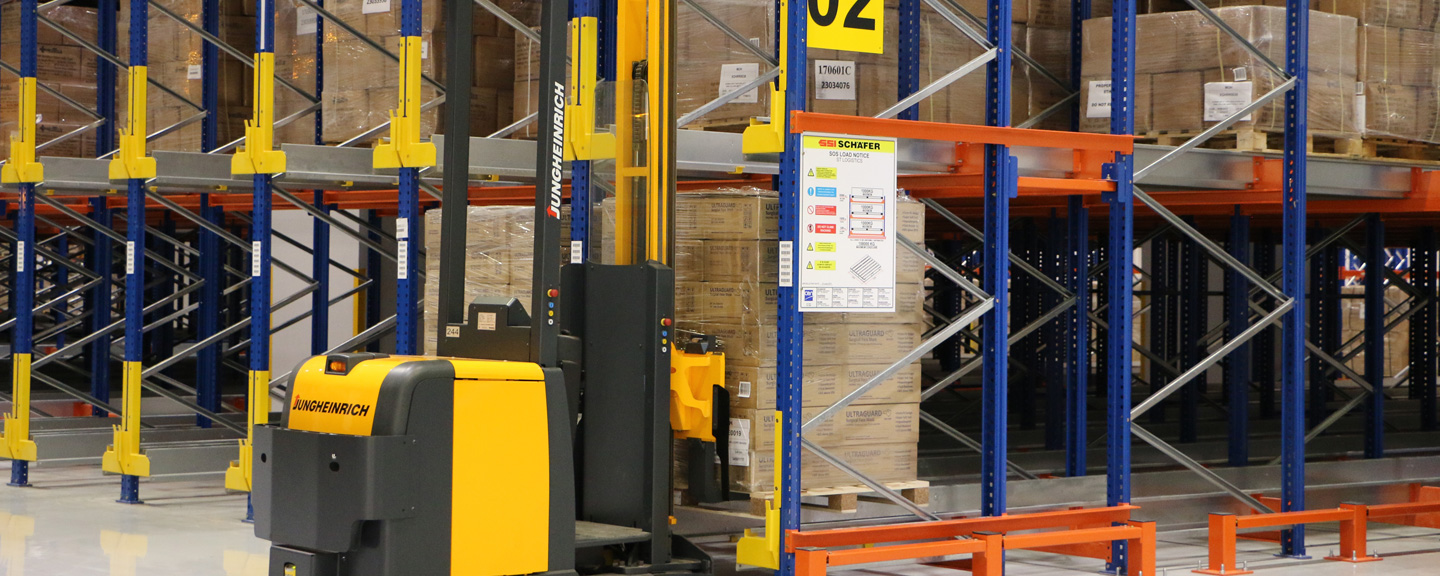
With the supply chain industry leveraging on technology, how are workers upskilled to match?
At ST Logistics, we believe that people are the core of our business. Investing in people who are passionate about bringing solutions to life is the key to running successful operations.
As much as complex capabilities are brought in to create more efficient workflows and accuracy in mining data, people are the ones who have to make sense of this data and use it effectively.
Read Vincent Phang’s opinion piece published in The Business Times, on how this is done, and why we are proud to be in an “industry that moves industries”.
The Business Times
Wednesday, June 20, 2018
Local logistics firms have continued to innovate, and companies have begun investments in new state-of-the-art warehouses, fitted with the latest technology and utilising predictive analytics to manage their supply chain and enterprise operations.
ON April 30 this year, the National Trades Union Congress (NTUC) set up the Supply Chain Employees’ Union (SCEU) to support the development of skills and competencies of employees in Singapore’s logistics and supply chain sector.
With the rapidly growing demands for operational support, coupled with competing priorities in land-scarce Singapore, the country saw several new logistics complexes that introduced new operating concepts, with more facilities coming on-stream as soon as next month.
These complexes feature capabilities such as Enterprise-wide Warehouse and Transport Management Systems, as well as high-rise, automated storage-and-retrieval systems that maximise real estate usage, while leveraging technology and automation techniques such as Automated Guided Vehicles.
These developments in Singapore necessitated the upskilling of our workforce to effectively operate these new platforms.
Today, we see a keen focus on employing operational techniques that address the challenges of real estate, labour and urbanisation in Singapore.
Local logistics firms have continued to innovate, and companies have begun investments in new state-of-the-art warehouses, fitted with the latest technology and utilising predictive analytics to manage their supply chain and enterprise operations.
Companies in this sector are also exploring all avenues to automate and streamline logistics operations.
On the warehouse floors within Singapore, we can expect automated forklifts and pallet movers to complement the worker’s efficiency, while in-house research teams experiment with exoskeleton outfits to augment our ageing workforce.
We will witness new telematics and real-time visibility systems tor optimising road fleet, and additive manufacturing to complement the traditional methods in supply chain management.
Hospitals have smart RFID cabinets to better manage their supply chains for better quality and patient safety.
Advanced algorithms also help to mine and learn data feeds, as they refine physical operations in this highly urbanised but connected digital landscape.
The adoption of technology within a logistics company not only boosts productivity, but also serves as an additional or an enhanced management of processes that take place daily.
Beyond the warehouse and distribution fleet, the arena of logistics extends into the world of supply chain management. In this world, it is not necessarily about the assets, infrastructure and inventory, but about what connects supply and demand, and the value it creates.
In this domain, the described assets, infrastructure and inventory exist as a manifestation of the reality of the physical constraints. In a perfect supply chain, these are minimised since logistics perceives them as inefficiencies.
What opportunities are there then in the future for supply chain management, especially in the Singapore context of real estate, labour and urban challenges?
FUTURE OF TALENTS IN LOGISTICS
People are at the core of the operation in the future of logistics and supply chain management: talented and skilled people, with a passion and understanding of the state of play with supply chains.
This is a skill in itself: identifying emerging techniques, bolting on what is available – with a view to complement, augment or even replace the traditional.
It is a play on both logistics and engineering, with a heavy slant towards innovation and technology.
Operators of the future will be comfortable with data science, using engineering and systems thinking to manage behaviour, while operating increasingly integrated and automated assets.
The line between the management and the rank-and-file will blur, as value is generated throughout the organisation.
We already see this shift. People are exposed to an increasingly advanced world with the rapid development of consumer technology, and innovations that touch their personal lives.
The workforce is already comfortable with smartphones, paperless transactions (ePOD, eCommerce), instant mass communications (WhatsApp), real-time visibility (Uber, Grab), augmented reality (modern electronic games), and drones. It is no longer about a return on investment, but rather, par for the course as a ticket to relevance.
The workforce aspires to better education and skills, and we have to continually challenge them with a work environment that will call on those skills and align with those expectations.
It is no longer viable to imagine single operators of forklifts or trucks. Their career development will be about utilisation and optimisation of the assets they control, the fleets they manage, the multidimensional value they add.
In the world of supply chain management, operators will be responsible for seamless transactions, real-time visibility, supply chain resilience, risk and assurance.
Operators will also integrate data feeds from various sources – government, client, open or proprietary – and be comfortable with synthesising scenarios and options.
Decision-making will be assisted via algorithms and the workforce will need to be able to deal with the noisy data environment, and ensure the best outcomes.
It is imperative to engage the people and provide this level of development for skills and competencies and to equip operators with the agility and dexterity to perform in an increasingly complex future.
Quoting NTUC secretary-general Chan Chun Sing said in his May Day speech: This is not about jobs but about people, and the development of which is critical for the future of the logistics industry.
As a supply chain industry, we impact every commodity and every physical transaction. We are the industry that moves industries. The future cannot be more exciting.